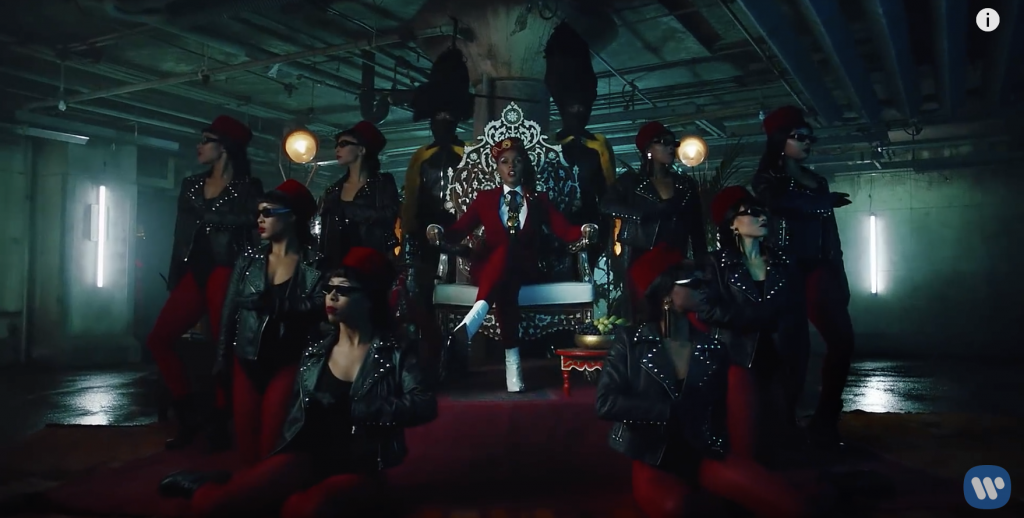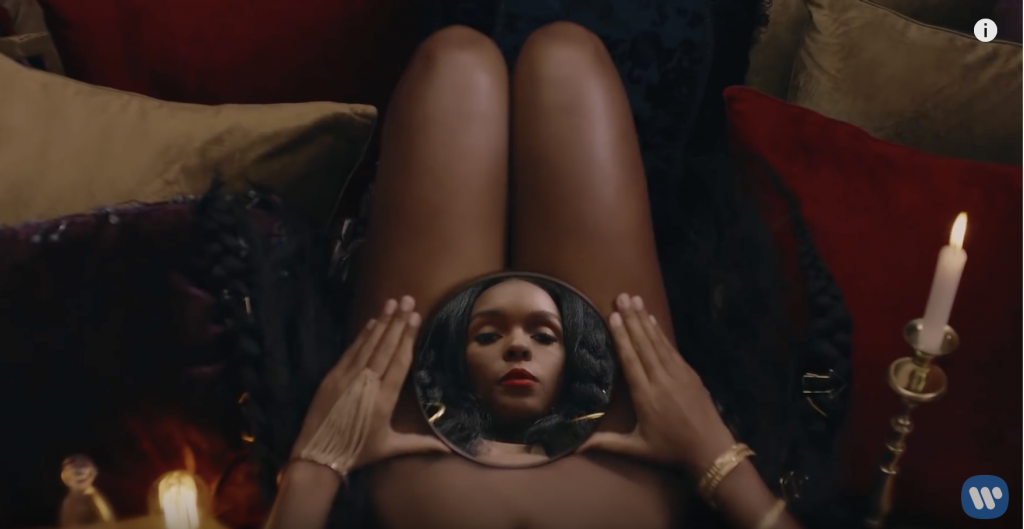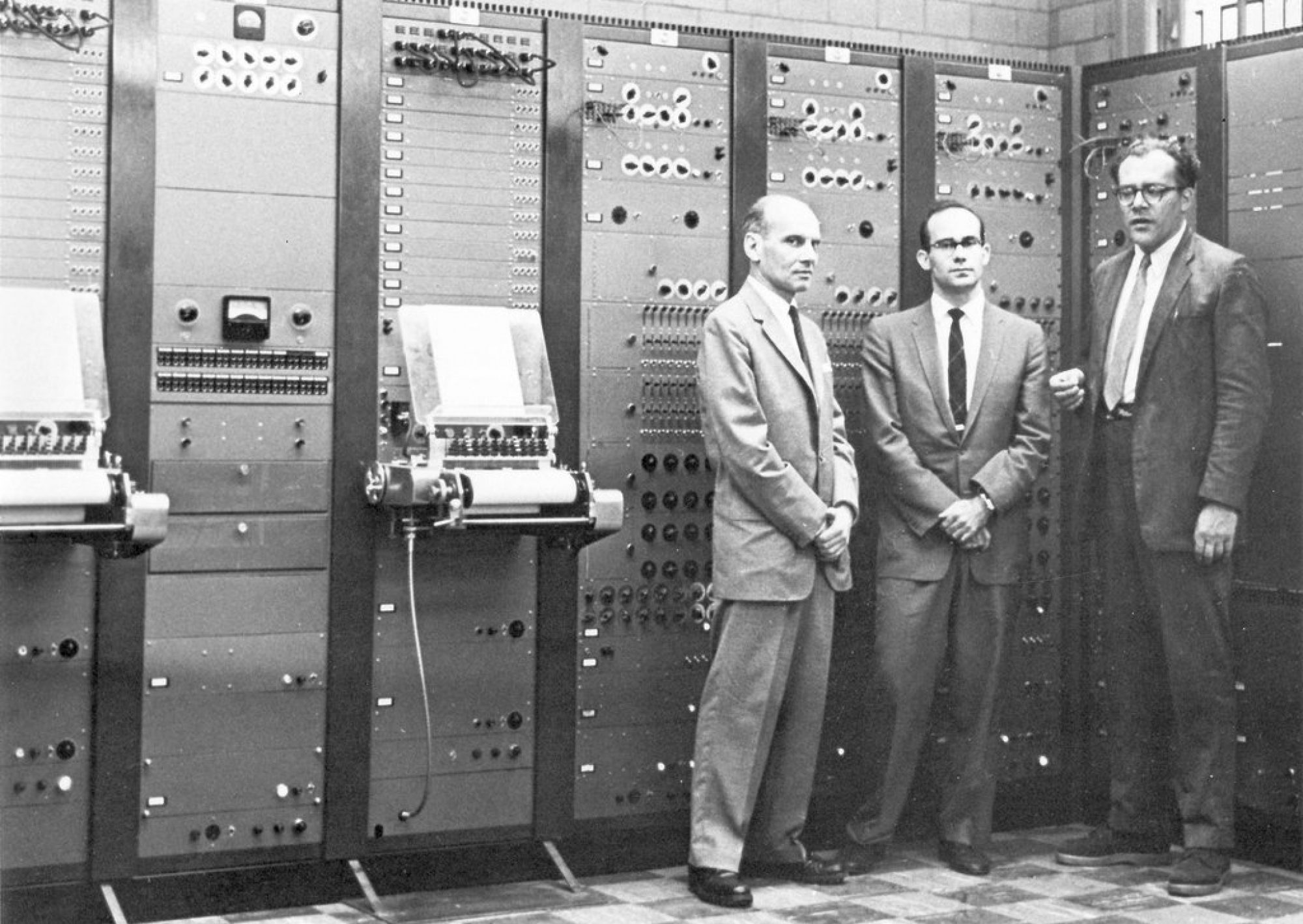First things first: if you’ve never heard of Janelle Monáe, you need to check out her “Emotion Picture” entitled “Dirty Computer.”
The entire video is around 49 minutes long, and it’s worth every second. The music and lyrics are paired with rich, thought-provoking visuals, including the infamous “pussy pants” from the song “PYNK.”
The music and visuals work together to empower the female body, focusing in particular on the black, queer, female body. The title, “Dirty Computer,” sets up a theme throughout the “Emotion Picture” of a futuristic world where white “cleaners” attempt to “cleanse” Monáe and her friends of their “dirty” memories. I interpreted this as a reflection of white society’s ongoing efforts to suppress blackness; to “whitewash.” As the video progresses, it becomes clear that the “cleaners” are trying to erase Monáe’s individuality and suppress her intersectional identity. Monáe says, “This album is about celebrating other Dirty Computers who have been pushed to the margins of society. This album is about reckoning what it means to have your rights trampled on and to face opposition, perseverance.”
One video from “Dirty Computer” that stood out to me was that which accompanied the song “Django Jane.”
Again, the musical style, lyrics, and visuals work together in this piece to promote Monáe’s intersectional identity. She says Django Jane is, “a response to me feeling the sting of the threats being made to my rights as a woman, as a black woman, as a sexually liberated woman, even just as a daughter with parents who have been oppressed for many decades. Black women and those who have been the ‘other’, and the marginalised in society – that’s who I wanted to support, and that was more important than my discomfort about speaking out.”
First, the video visually explores the idea of power. One website interprets this visual depiction as follows: “Janelle sits atop a throne reminiscent of West African royalty, surrounded by black women in studded leather jackets and shades… It’s a marriage of African and African American—shared blackness interpreted in a rap song.”

This visual theme compliments lyrics like,
Second, another prevailing visual theme was Monáe’s outfit: the tuxedo. At one point the lyrics say, “Remember when they used to say I look too mannish, Black girl magic, y’all can’t stand it…”

Monica Miller writes in the Journal of Contemporary African Art, “Described by Monáe variously as a “superhero uniform,” a “weapon,” “armour,” and essential for her “time travel,” the tuxedo seems, above all, to be a vehicle for promulgating progressive ideologies of race, gender, and sexuality.” She goes on, “[Monáe] creates wildly inventive visual narratives for her music in which her body and its tuxedo are worked in the service of revising oppressive histories and creating alternative futures.”
Third, the album in general celebrates and de-stigmatizes the female body. The image below appears only once in the video, accompanying the lyrics, “…And hit the mute button, Let the vagina have a monologue.”

The lyrics themselves send the message that men need to listen to women; that women demand the space to be heard and acknowledged. The visual reference itself may come from from Sebastian Lelio’s film “A Fantastic Woman,” about a transgender woman whose identity is at odds with the identity ascribed to her by society. However, an even earlier source for these references may be a photograph by Armen Ordjanian. Eric Kohn writes, “Ordjanian’s photograph is a feminist meditation on a woman seeing her identity reflected in her physicality, while the shot in Lelio’s movie implies the feelings of a woman whose gender identity transcends the limitations society imposes on her, and Monaé seems to be exhibiting a more explicit message of female empowerment in a vicious battle of the sexes.” Clearly Monaé’s use of this image, and previous meanings associated with this image reinforce her dialogue on female identity, empowerment, and resistance.
Unsurprisingly, the Youtube comments for “Django Jane” are overwhelmingly positive:



Monáe says, “Dirty Computer is a gift that I feel very honored and privileged to give. I hope that all the Dirty Computers around the world feel heard, feel seen, and feel celebrated.”
